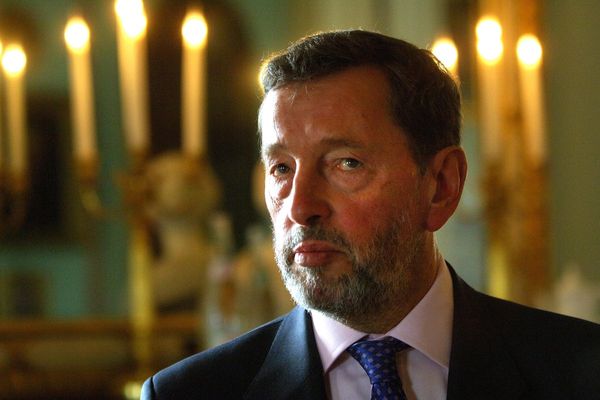
With the election looming, the factions of both parties are girding their loins, marshalling their forces and… preparing for the possibility of defeat, and the bitter internal struggle that will then ensue.
Labor’s lost loves don’t need much more elaborating, but in NSW the Liberal Party has been tearing itself apart in a struggle between the federal party and the state branch. With key lower house preselections still unresolved after weeks of conflict, the feds have once again stepped in to take control of candidate selection in about eight seats.
Five of these are crucial — Greenway and Parramatta in outer Sydney, Hughes in its south, inner-city Warringah and Eden-Monaro on the south coast. Eden-Monaro, Hughes and Parramatta were scheduled to have votes this week, so the sudden swoop back in by the feds has provoked widespread anger.
The official announcement is that the process of selection has become so dysfunctional at the branch level that there was no option but to step in. Branch members say it’s the exact opposite: that the branches were functional, and functionally about to select candidates that were either independents or from the moderates faction that opposes Scott Morrison’s centre-right faction.
An earlier intervention had been staged to protect Morrison allies Sussan Ley, Alex Hawke and, as part of the package, moderate Trent Zimmerman, all of whom were facing preselections from disgruntled branch members, critical of branches going for more than a decade without preselections.
The committee that did that (Morrison, NSW Premier Dominic Perrottet and former federal party president Chris McDiven, pretty much a right-shifted balance of forces) is now wrangling the marginal seat preselections (and those of a few unwinnable ones). The overall object is to keep control of the state party in the hands of the centre-right, as led by ScoMo and MP for Mitchell Alex Hawke, both from conservative Christian backgrounds.
Centre-right? Yes, because there’s a “right” or “hard right” around the Catholic right, such as Perrottet, including some hardcore non-religious economic dries, and people from some different evangelical/pentecostalist (and dispensationalist — don’t ask) groups.
These groups have all arisen and taken prominence in the party in the last 25 years, prior to which religion was not much of a pivot around which political difference moved. It’s a measure of the party’s hollowing out. Liberal Party branches were once both political and social hubs in middle-class suburbs, something people joined as much for the tennis club and dances as the politics.
But as society became more individualist, less “joiney”, the branches aged and withered. This was just as non-mainline churches began to grow, as an answer to atomisation — not a tombola dinner dance, but congregations bound tightly together in the love of God and bad rock music. Some of the MPs they’ve produced are genuine happy-clappies, and some just saw a ready-made faction there and committed themselves to 10 years of gibbering-in-tongues (not dissimilar to joining Labor’s Industrial Left, it must be said).
Across the country, state Liberal parties have been subject to this process and it has drawn them away from the secular middle of Australia where they should be. It’s the usual crowding-out effect — moderates want to win the election; the centre-right want to win control of the party.
This, several people have told me, is Scott Morrison’s real passion (apart from casual proselytising). Lord Halifax, who lost out to Churchill in 1940, said that his true ambition was always to be Master of Hounds; the premiership never motivated him. ScoMo, it seems, wants to be president of the NSW Liberal Party even when he’s not. Raised in the perfervid political atmosphere of a Christian sect, his repeated failure to step up to national challenges is because he can’t fully regard it as real.
But the struggle against moderates in his own party? Let him at it!
Many Crikey readers may find it hard to believe that ScoMo & Co can be described as the “centre” of anything, with the implication of an actual right beyond that. But it’s true. The “hard” right is a coalition of utterly different groups, with little in common but a feeling that the world is going to hell, either through fiscal irresponsibility or ungodliness. One of their precursor groups was the delightfully named “Uglies” — a faction largely composed of Polish and Baltic Catholic migrants in the 1970s and ’80s who chomped their way through the NSW party before being ejected (one of the leading culture-war journos at The Australian is a grandchild of a leading Ugly, so the war continues…).
The attachment of new evangelicals to this faction was responsible for the branch stack wars of 2010-2012 — Christian on Christian action, with punch-ups, rogue branch meetings, lockouts and the rest.
The centre-right prevailed, because they have a stronger social base in the NSW party than the happy-clappies in other states, because of one extraordinary historical event — evangelist Billy Graham’s 1959 visit to Australia, during which he stayed for several months in the Seven Hills region, then farmland outside of Sydney, and declared it blessed.
Followers — Graham’s events had gained 200,000 attendees — began to move there, and a whole swathe of evangelical Christians began to settle there. Today the area is the centre of Hillsong and was Alex Hawke’s original base. They see NSW as their branch now, and they’re not going to give it up without a fight, even if it means infuriating the branch footsoldiers they will be relying on in the upcoming poll.
It’s a situation as self-destructive as anything that’s going on in Labor — but you won’t read about any of it News Corp, not in any depth. Thank God they’ve decided to stay away from cheap political sensationalism at last!







